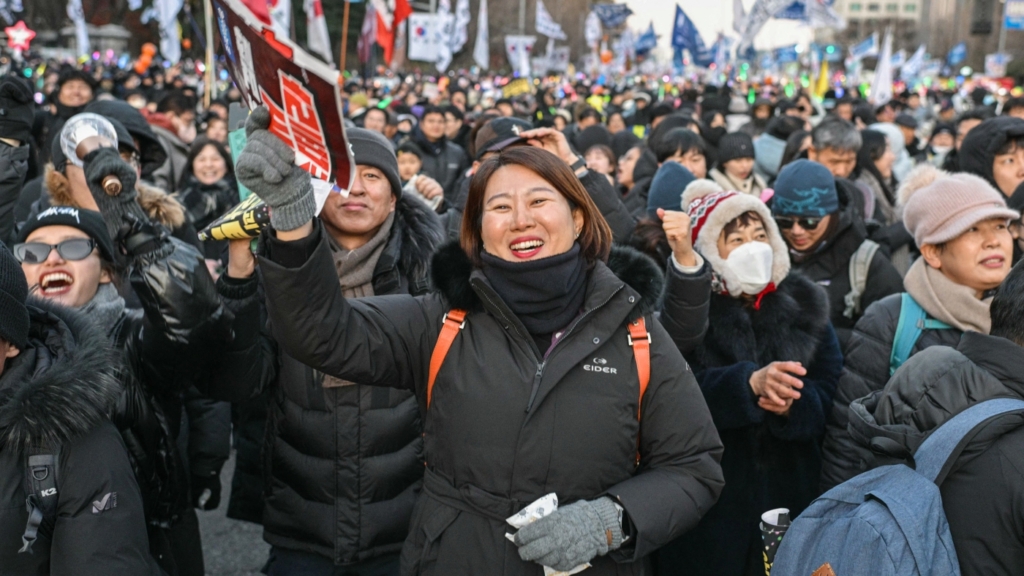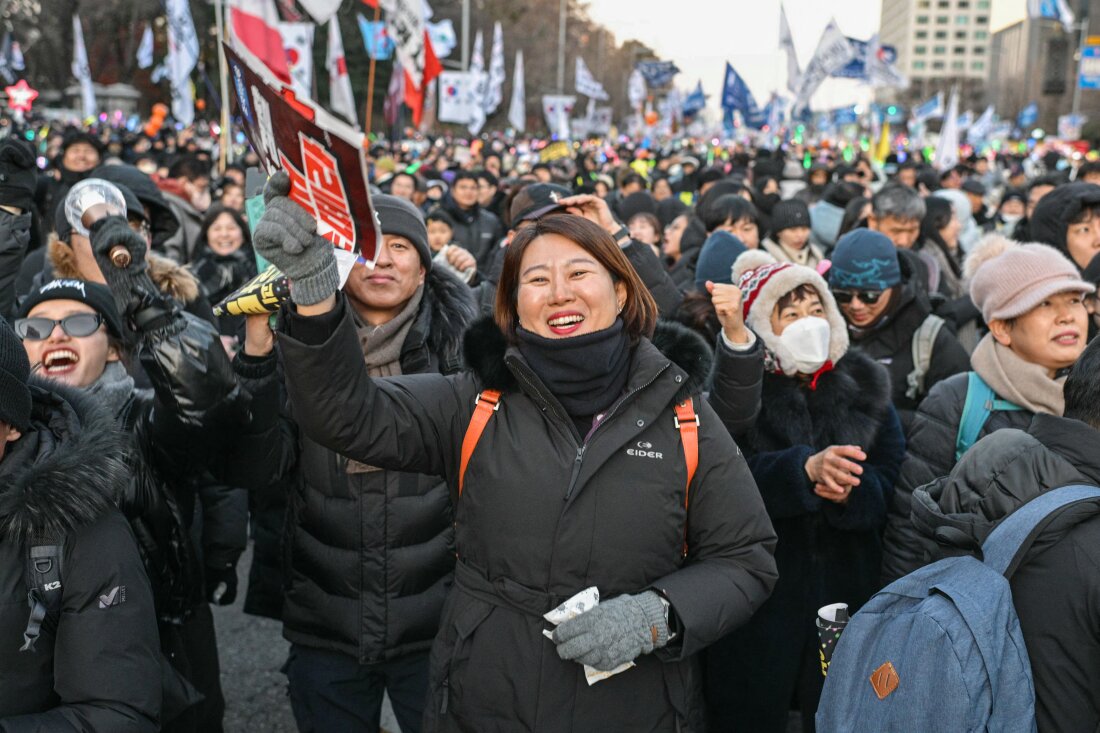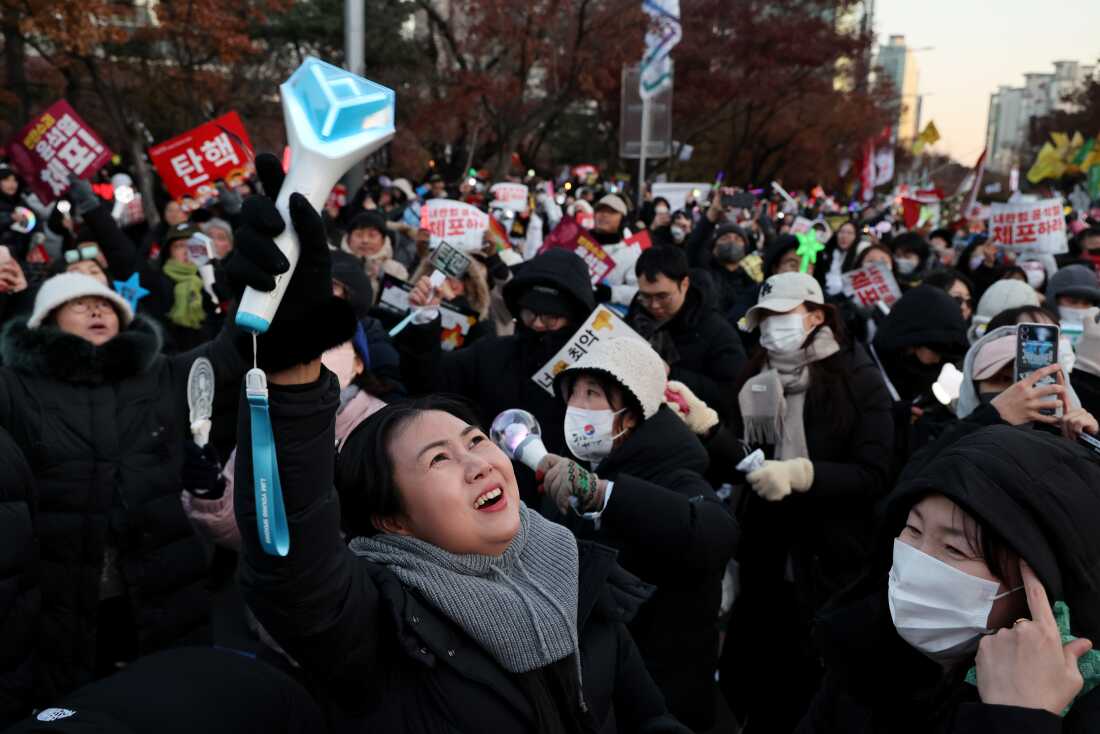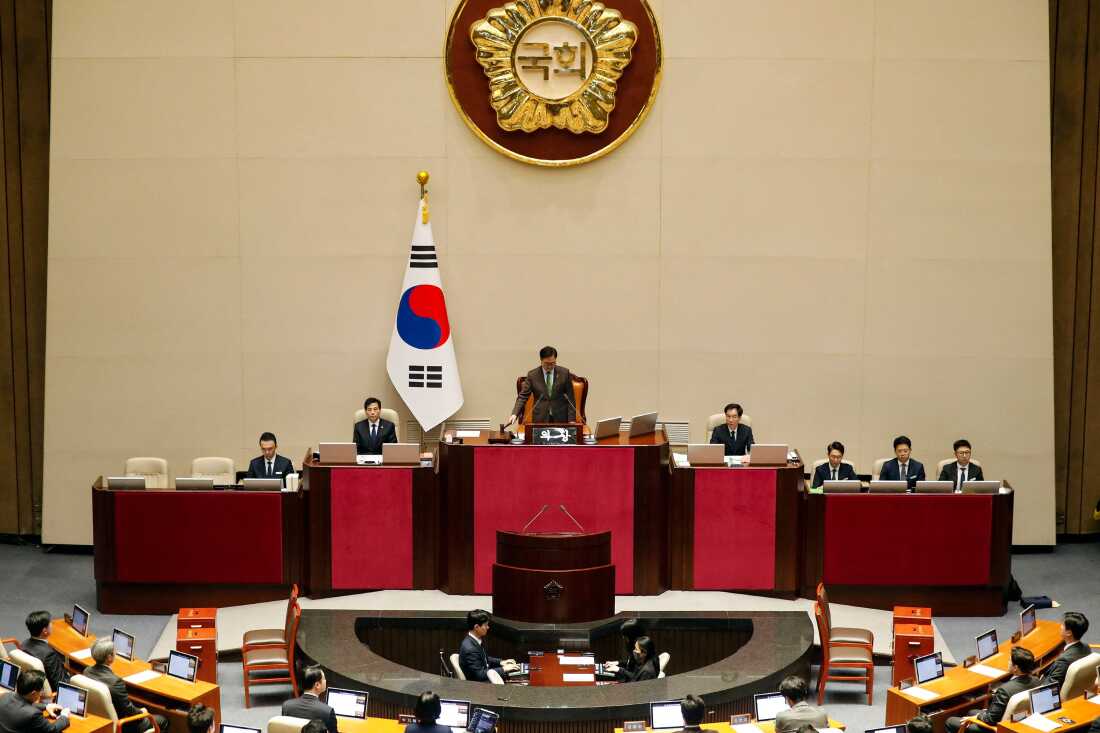Bu içerikte, Güney Kore Devlet Başkanı Yoon Suk Yeol’un on bir gün önce sıkıyönetim ilan etme girişimi nedeniyle parlamento tarafından görevden alındığına dair bilgiler bulunmaktadır. Oylama, 300 üyeli Ulusal Meclis’te 204’e karşı 85 oyla kabul edildi. Ayrıca, protestocuların başkanın görevden alınması çağrısında bulunduğu ve ikinci sıkıyönetim azil oylamasının sonucunu öğrendikten sonra Seul Ulusal Meclisi önünde tepki gösterdikleri bir fotoğraf da içeriğin bir parçasıdır. Fotoğrafın kredisi Anthony Wallace/AFP aracılığıyla Getty Images olarak belirtilmiştir. Bu içerikte, Güney Kore’de Yoon’un görevden alınması için yapılan oylamada onlarca iktidar partisi milletvekilinin muhalefete katıldığı belirtiliyor. Geçen Cumartesi yapılan önceki bir görevden alma oylaması başarısız oldu çünkü iktidar partisi milletvekilleri oy kullanmayı boykot ettiler. Ulusal Meclis’in dışında ve ülke çapında patlak veren büyük kalabalıkların kutlamalarına tanık olundu, birçoğu K-pop konserlerinde sıkça görülen ışık çubuklarını sallıyordu. Yoon’un devlet başkanlığı görevleri askıya alındı ve Başbakan Han Duck-sool Geçici Başbakan olarak görev yapacak. Güney Kore Anayasa Mahkemesi şimdi Yoon’un görevden alınması lehine veya aleyhine 180 gün içinde karar vermek zorunda. Ayrıca haberde yer alan protestocuların kutlamalarına dair bir görsel de bulunmaktadır. Bu içerik Güney Kore’de yaşanan siyasi gelişmeleri konu almaktadır. Güney Kore Anayasa Mahkemesi Başkan Vekili Moon Hyung-bae, adaletin hızlı ve adil bir şekilde yerine getirileceğini belirtmiştir. Görevdeki Başkan Yoon Suk Yeol, halkla olan geçmiş iki buçuk yıllık yolculuğunun şimdilik durduğunu ancak gelecekte devam edeceğini ifade etmiştir. Anayasa Mahkemesi’nin aldığı karar sonucu 60 gün içinde yeni bir başkanlık seçimi yapılması gerekmektedir. Muhalefet partisi lideri Lee Jae-myung, Yoon’un görevden alınmasını ülkenin gerçek sahipleri olan halkın zaferi olarak nitelendirmiştir. Yoon ise sıkı bir şekilde mücadele edeceğini ve sıkıyönetim ilanının meşru bir yönetim aracı olduğunu savunmuştur. Ayrıca içerikte, Güney Kore Devlet Başkanı Yoon Suk-Yeol’un halka seslendiği bir fotoğraf da bulunmaktadır. Bu içerikte, Güney Kore’deki muhalefet milletvekillerinin Kuzey Kore ile işbirliği içinde hükümetin çıkmazını sonlandırmanın gerekli olduğunu ısrarla savunduğu belirtilmektedir. Ancak olayların açıklaması çöktü ve destekçileri ya onu terk etti ya da görevlerinden alındı, tutuklandı. Askeri komutanların çoğu sıkıyönetim kararnamesindeki rolleri nedeniyle görevlerinden alındı ve Güney’in olası Kuzey Kore saldırısıyla başa çıkmak için askeri olarak hazırlıksız olduğu endişesi yayıldı. Yoon, ülkeyi terk etme yasağı getirilen Güney Kore’nin ilk devlet başkanı oldu ve isyana karıştığı şüphesiyle polis ve soruşturmacılar tarafından soruşturuldu. Yoon’un yerelde popülaritesi azalırken, Biden yönetimiyle popüler bir figür olarak kaldı ve ABD, Güney Kore ve Japonya arasındaki üçlü işbirliğini sıkılaştırmada önemli rol oynadı. İlk azil kararında, muhalefet partileri “değer diplomasisi” adı altında, Yoon yönetiminin Kuzey Kore, Çin ve Rusya’yı yabancılaştırarak ve “olağandışı bir Japonya yanlısı tavır” izleyerek jeopolitik dengesizliği göz ardı ettiğini iddia etti ve bu durumun Güney Kore’nin izolasyonunu artırarak ulusal güvenliğine zarar verdiğini savundu. ABD’li yetkililerin, ilk azil kararından sonra muhalefet politikacılara, bölgedeki bazı temel başarılarını sorgulayan bu dil hakkında ne düşündüklerini sordukları yerel medya tarafından rapor edildi. İkinci azil yasasından bu dili çıkardılar.
[ad 1]
Kaynak: www.npr.org










Yorumlar kapalı.